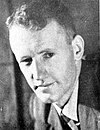Rhodesian general election, 1974
|
|
|||||||||||||||||||||||||||||||||||||
|---|---|---|---|---|---|---|---|---|---|---|---|---|---|---|---|---|---|---|---|---|---|---|---|---|---|---|---|---|---|---|---|---|---|---|---|---|---|
|
|||||||||||||||||||||||||||||||||||||
|
All 66 seats to the House of Assembly of Rhodesia 34 seats were needed for a majority |
|||||||||||||||||||||||||||||||||||||
|
|||||||||||||||||||||||||||||||||||||
|
|||||||||||||||||||||||||||||||||||||
The Rhodesia general election of 30 July 1974 saw the Rhodesian Front of Ian Smith re-elected, once more winning every one of the 50 seats elected by white voters.
Since the previous election in 1970, the main African nationalist groups had changed their strategy and gone into exile in Zambia (and to a lesser extent Mozambique and Botswana), launching a war to overthrow white minority rule by force. The main African groups, the Zimbabwe African National Union (ZANU), Zimbabwe African People's Union (ZAPU) and the Front for the Liberation of Zimbabwe (FROLIZI), formed the African National Council under Bishop Abel Muzorewa to act as a collective political leadership and undertake any negotiations with the Rhodesian government.
In June 1974, the African National Council rejected settlement proposals which had come out of discussions between itself and the Rhodesian government. As the Rhodesian Parliament was into its fifth year, a general election became a real prospect. Timothy Gibbs of the Rhodesia Party announced on 9 June 1974 that he expected a September election, and on 19 June, Prime Minister Ian Smith announced that there would be an election imminently (he did not name the date). He also announced round table talks with Africans, including the Council of Chiefs. These talks were rejected by the African National Council as a waste of time.
The Rhodesia Party, a white opposition party, had been formed by ex-Rhodesian Front MP Allan Savory in 1972. They were a moderate group which advocated more moves towards including the African population in internal politics. Early in June 1974, Savory made a speech at Hartley in which he was reported as saying that if he had been a black Rhodesian, he would be a terrorist. The uproar was such that Savory was forced from the leadership (replaced by Gibbs) and resigned from the party on 16 June. Despite the turmoil, the Rhodesia Party managed to nominate candidates in 40 out of the 50 seats.
...
Wikipedia


